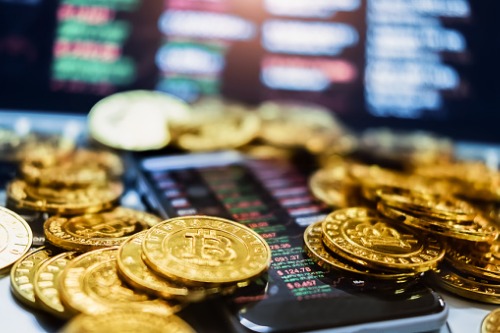Experienced securities lawyer says lawmakers are working their way through complexities but that comfort with asset class some way off

Skeptics read Bitcoin’s last rites after it plummeted to just above $4,000. But symptoms of crypto fever have been reported once again among a number of rabid retail investors as its price soars above $12,000.
Some have got rich by trading the embryonic currency but many who delved into the matrix of tokens and exchanges have been left bemused … and broke.
Carol Derk, partner at Borden Ladner Gervais and a securities, derivatives, cryptocurrency and blockchain expert, told WP she believes it will be some time before people feel comfortable investing in crypto assets.
Regulators, who she has consulted with, have so far struggled to come up with the necessary framework that both protects the investor and provides room for the innovation this fledgling asset class is renowned for.
She said: “The regulators are very much aware of the fact that this is an asset class that needs to be regulated. They are also aware of the fact that the regulation they put in place has to be innovative in that it needs to address the asset class and what it represents.
“They are struggling to do that in a way that gives them the mandate to protect investors, primarily retail investors who are potentially not sophisticated enough, to make good investment decisions.”
The reasons why crypto assets are proving so hard to regulate and assimilate into the securities machine are widespread. Of course, evangelists and believers will point out that Bitcoin, for example, was designed to swerve the establishment that brought us the crippling financial crisis of 2008.
But Derk explained that many concerns remain up in the air. While the issuers of tokens might comply with security fraud, the subsequent crypto exchanges are “frankly a bit of a runaround security legislation”. Then there is the valuation of the asset: how do you price it and how do you know the value is accurate?
Derk said: “Some of them, like Bitcoin and Ether, have a fair amount of liquidity. You can go to those exchanges and be somewhat comfortable with what is being offered. But other coins are very illiquid, so how do you know? There are still concerns about market abuse and financial abuse with some of these coins.”
There are also questions about the brokers and dealers and what KYC and KYP they can actually do, while the volatility and time between a transaction means prices can fluctuate wildly.
However, arguably the biggest issue, according to Derk, is what crypto assets are – securities or derivatives? The security exchange commission in the US is taking it as read that digital assets should be treated as securities and therefore subject to the relevant legislation.
Derk said: “Many in the industry are coming to the same conclusion that these should be regulated as securities but that the security legislation needs to be amended and overhauled to be innovative enough to deal with this asset class.”
She added: “I’ve gone through the process as a fairly seasoned securities and derivatives lawyer on doing analysis on assets that my clients are interested in issuing. Initially, I can sometimes see that it would be regulated as a security but if you dig deeper, I would classify it as a derivative. It will be interesting to see how people start to differentiate between securities and derivatives.”
As a global asset, Derk believes regulation needs to be set accordingly or risk investors jurisdiction shopping. Trust is also lacking, even when buyer and seller are in position, and she believes that comes down to not having capitalized custodians and regulation in place. While not registered to offer financial advice, she urged investors to be smart.
She said: “Do as much due diligence as you can. If you want to dabble in this because you think it would be fun, only use money you would be prepare to lose. If you don’t have play money, don’t do it.”
Follow WP on Facebook, LinkedIn and Twitter



